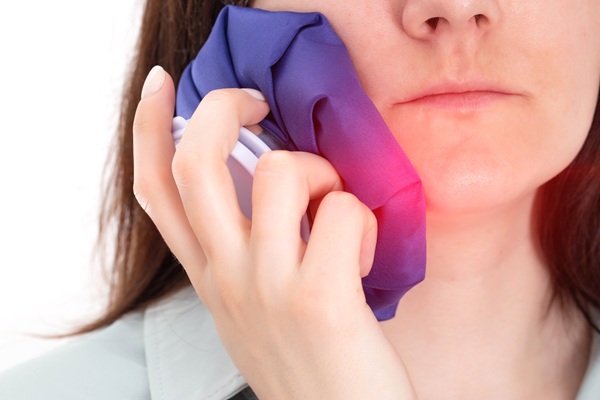When To See an Emergency Dentist: Quick Solutions for Sudden Dental Problems

An emergency dentist can provide tooth-saving care in emergency dental situations. However, it is common not to know what constitutes a dental emergency nor how to handle common situations while waiting for dental care. Understanding when to seek help from an emergency dentist and how to manage the situation before you get to their office can significantly affect the outcome.
What constitutes a dental emergency?
An oral health problem that involves severe pain, injury, or infection and requires immediate dental attention is considered a dental emergency. For reference, emergency dentists typically handle the following problems:
- Severe toothaches
- Knocked-out teeth
- Partially dislodged teeth
- Badly cracked teeth
- Lost or damaged dental restorations
Visit the emergency room (ER) if the dental problem is life-threatening, such as if the patient cannot breathe due to rapid swelling or if the mouth is bleeding uncontrollably. On the other hand, minor chips, loose fillings, or mild toothaches, while uncomfortable, can usually be addressed during a regular appointment with a general dentist.
An emergency dentist’s quick solutions for dental problems
The goal of emergency dental care is to stabilize the condition and provide fast pain relief until follow-up care can be arranged. Some of the most common treatments from an emergency dentist include:
Temporary dental fillings
If a dental restoration, such as a filling, falls out or a tooth sustains damage, an emergency dentist can clean the area and place a temporary dental filling. This can protect the tooth until the patient is able to get a permanent dental restoration from their general dentist.
Tooth extractions
Saving the natural tooth is always preferred. However, there are times when a tooth is too damaged to be saved, such as due to extensive cracks, chips, or infection. Thus, an emergency extraction may be necessary to prevent further oral health problems.
Antibiotics
An emergency dentist may use antibiotics to control an infection. Therefore, this treatment is often used to address dental abscesses, a condition in which infection causes a pus-filled pocket to form in the teeth, gums, or underlying bone. In most cases, antibiotics are only the first step in controlling the infection and reducing inflammation. The dentist will also remove the pus or decay and restore the tooth.
Reimplantation of knocked-out teeth
If a tooth is knocked out and brought in quickly, an emergency dentist can attempt to reinsert it into the mouth. They will work to stabilize the tooth to encourage reattachment to the jawbone.
First aid solutions: What to do before you get to the dentist
Contact an emergency dentist immediately after a dental emergency occurs so that the patient can receive prompt guidance and treatment. That said, performing first aid at home before leaving for the dentist’s office is key to helping manage pain and increasing the chances of a successful outcome. Here is how to perform first aid for common dental emergencies:
Broken or chipped tooth
Collect any pieces of the tooth, rinse them with warm water, and store them in a sealed container with saliva, contact lens solution, or milk. Rinse the mouth with water to clean the area. Then, apply a cold compress to reduce inflammation.
Knocked-out tooth
Handle the knocked-out tooth at the top part (the crown). Avoid touching the tooth root. Rinse the tooth under a gentle stream of water, taking care not to scrub it. If possible, place the tooth back into its socket. Hold it in place with a clean cloth or gauze while heading to the emergency dentist.
However, if the tooth cannot be reinserted, store it in a sealed container with saliva, milk, or contact lens solution. Do not wait to see the emergency dentist. Reimplantation is most successful within 30 to 60 minutes of the tooth being knocked out.
Toothaches
Gargle with warm salt water to help reduce inflammation. Ask the emergency dentist over the phone if taking over-the-counter (OTC) pain medication to alleviate discomfort is okay. OTC medications are not always the best option for certain conditions. For example, ibuprofen can exacerbate bleeding.
Bleeding
Apply gentle pressure to the area with clean gauze or a damp cloth. A cold compress may help slow the bleeding and reduce swelling. If bleeding persists after 15 minutes, visit the ER rather than an emergency dentist.
Get quick, effective solutions in a dental emergency
An emergency dentist provides prompt care to restore oral health, prevent further complications, and alleviate pain and discomfort. If you are looking for a general dentist who provides emergency dental care, reach out to our team at Oak Tree Dental. We help patients in McLean and nearby when they need it most.
Request an appointment here: https://www.oaktreefamilydental.com or call Oak Tree Dental at (703) 763-5239 for an appointment in our McLean office.
Check out what others are saying about our dental services on Yelp: Emergency Dentist in McLean, VA.
Recent Posts
Having a dental emergency can be a very stressful experience, and emergency orthodontics can be even more worrisome. But what exactly constitutes an emergency when it comes to orthodontic care? We will explore what requires an emergency orthodontics visit and the best ways to prevent and treat them. With information, you can be prepared in…
You should see an emergency dentist for your abscessed tooth. This condition is an infection. Severe pain and swelling are its main symptoms. Seeking emergency dental care can help right away. An abscessed tooth can become a jaw infection if it does not receive immediate treatment. If you want to find out why you should…
A toothache can be just a bit of pain or it can be severe enough to require an emergency dentist. Recognizing the different symptoms can save you a lot of time. When you are in doubt, it is better to choose to visit the dentist and get help. That way, you can get lasting relief…
If you experience pain when you brush your teeth or when you consume foods and beverages, that might be a sign of a serious dental issue. Getting to the root of the problem is important since failing to do so often leads to more serious issues. Besides, waiting for the problem to worsen only leads…


